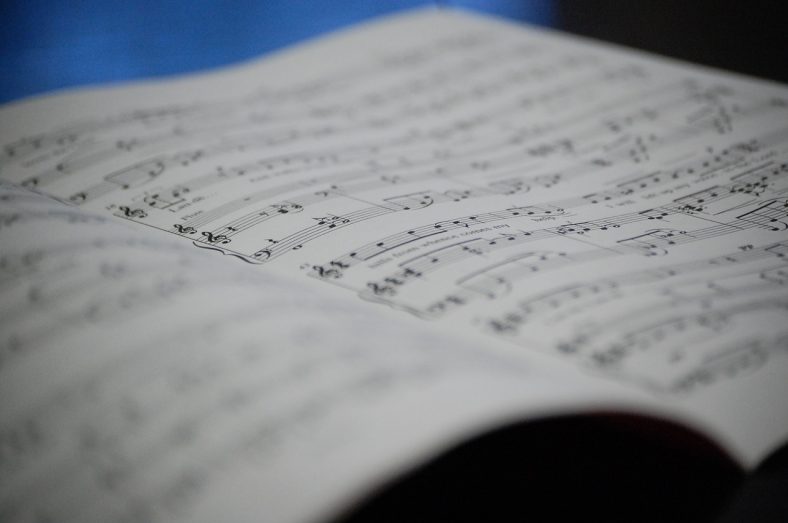15 of the Best Music Theory Books

It’s easy to learn some basic notes on any instrument and to play easy melodies correctly. However, knowledge of music theory opens a wide range of musical options in both songwriting and performance. This is where a good music theory book can come in handy.
Using a good music theory book in combination with some tuition (either in-person or online) can really push your music theory knowledge further.
Contents
- 1. Music Theory: From Beginner to Expert
- 2. Alfred's Essentials of Music Theory
- 3. Berklee Music Theory Book 1
- 4. Music Theory For Dummies
- 5. The Practical Guide to Modern Music Theory for Guitarists
- 6. How to Read Music in 30 Days: Music Theory for Beginners
- 7. Music Theory for Computer Musicians
- 8. Music Theory for the Bass Player
- 9. The Jazz Theory Book
- 10. Music Theory 101
- 11. Music Theory for Guitarists
- 12. The Musician's Guide to Theory and Analysis
- 13. Music Theory Remixed: A Blended Approach for the Practicing Musician
- 14. Harmony and Theory: Essential Concepts Series
- 15. Fretboard Theory: Complete Guitar Theory
- Summary
1. Music Theory: From Beginner to Expert
It covers everything you need to know at a nice pace. It’s written simply, yet it holds all the necessary information you might need on topics like notations and so forth.
This book is best used by people who already know something about music, but it can be used by complete beginners as well to get to learn about music theory.
An all-around music theory textbook for beginners and intermediate players.
2. Alfred's Essentials of Music Theory
This book is meant to be used for self-study, with additional CDs that help you hear what you’re reading about as well as to practice your hearing ear.
The book is divided into 75 concise lessons, with different reading and writing practices throughout the book. It’s suitable for all beginners as it is very concise, plainly written, and easy to understand, with lots of examples for the stuff that’s written in the lesson.
A concise, self-study, complete music theory book.
3. Berklee Music Theory Book 1
When a book is bearing the name of one of the best music colleges in the world, you know you’re in for a treat. Berklee Music Theory Book 1 is a great textbook on music theory, no matter the instrument you’re playing. It’s written briefly and concisely, but there are still tons of useful information in this book.
Because it covers everything elementary, it’s best used by beginners or intermediate players, as advanced one will have to know all the theory that’s covered in this book. The great thing about it is that there are online audio lessons as well.
4. Music Theory For Dummies
Like so many “dummies” books, this one is also great stuff for all beginners. It’s written plainly and explains everything in chunks. From mastering scales, pitches, intervals, to understanding basic notation, tempo, dynamics, through melodies, chords, and progression, you will cover everything you need to know. Even though this is a great book for beginners, even intermediate musicians can learn something new from this.
5. The Practical Guide to Modern Music Theory for Guitarists
Even though there are many different books for general music history, you might want to find some made especially for your instrument. It can be a bit hard to put all those theories to practical use with different instruments.
This book is meant to be used by some bit more advanced musicians and more specifically, guitarists. It will show you how to use different things you’ve learned in practice with your guitar. It does this with 200+ practices and licks you can use to create masterpieces in your guitar playing.
6. How to Read Music in 30 Days: Music Theory for Beginners
Another book for absolute beginners. This one combines both written knowledge as well as practical work to help you learn the basics of music theory. This book has 150+ music examples, written exercises, listening challenges, tests, and online access to the audio examples library.
All of this is going to help you really learn what you have to know to get deeper into music theory.
7. Music Theory for Computer Musicians
With the development of technology, more and more people can (and are) becoming musicians just by playing with their computers. You don’t have to own and learn how to play an instrument when you can create music just through your computer or even just a mobile device.
On the other hand, music is still music – and music theory is still needed if you want to get a good-sounding finished product or be more efficient when composing.
This textbook is meant for use by just that kind of musician. In it, you will find all o the music theory but explained so that people who use computers as their main instrument can easily learn what they need to know to become better musicians.
8. Music Theory for the Bass Player
Bass players get all the mocking in bands, but their role is crucial. There is also something soothing and empowering from the fact that even though you’re not at the forefront, the band wouldn’t work without your bass input.
This book is written so that it shows all of the necessary knowledge that a bass player would ever need. It’s great for beginners as it doesn’t insist on the notation reading, but instead uses -easy-to-read diagrams that show you everything you need to know. With it, you will also get access to 89 different video lessons that will show you all the things from the book in person.
9. The Jazz Theory Book
The Jazz theory book is an older, comprehensive textbook that is being used by universities all around the world to teach jazz. It features everything you might want or need to know about jazz in one place.
It’s definitely not for beginners – to use this book you will need to have basics covered. But if you’re serious about learning jazz music and the theory behind it, this is the best book you can find on the topic.
10. Music Theory 101
The Music Theory 101 is a comprehensive, yet easy-to-read and funny book on music theory. It will help you to learn how to properly read and write spreadsheets as well as the other intricacies of music which can then be applied to any genre from classical to rap music.
You should note however that for using this book, you need to know how to read and write notes properly.
11. Music Theory for Guitarists
The Book is accessible online and gives an insight into 94 audio example tracks, featuring every possible element such as scales, modes, chords, ear training, and more.
Overall, this book is incredibly helpful and a popular choice considering the many readers and fans.
12. The Musician's Guide to Theory and Analysis
The price of this book is a little steep but considering the level and density of content, this is not so surprising. There is a reason why this book is so frequently used by professors and students across the globe.
The book also features video guides along with textual type lessons and quizzes that help progress a person's learning and understanding of the material faster.
A high-priced but very high-quality book if you want a top-notch music theory book!
13. Music Theory Remixed: A Blended Approach for the Practicing Musician
The book offers music theory learning with a twist - taking examples from the modern music world and different genres to explain and present tonal music theory better. Learning from rock, jazz, techno, and even film music, it's a fascinating approach, to say the least.
A balanced knowledge exposure with clarity that gets through successfully, aiding in learning music theory and helping out students.
All in all, this book is a good choice and very good high-quality material to learn from!
14. Harmony and Theory: Essential Concepts Series
The density of this content is truly something, you have everything from the basics like scales, chords, intervals, rhythms, and key signatures to build a very strong foundation of music knowledge.
Further along you get the much needed harmonizing, transposition, chord inversions, key centers, and other key elements that make you better understand music and theory as a whole.
This reasonably priced book is a good buy considering the value-for-price ratio!
15. Fretboard Theory: Complete Guitar Theory
This book holds content about the ways and methods to approach learning the guitar, from the basics like chords, scales, melodies, and riffs to shredding solos, understanding intervals, modes, and many more things!
This issue excels at helping students and beginner guitarists in quickly mastering music theory and learning the guitar.
Summary
I hope this article serves to help you find the best music theory book for you. It includes everything from beginner music theory books to those positions for intermediate and advanced players.
It also includes options based on specific musical instruments, as well as one for music producers that want to just know basic music theory for creating music on a computer.
Music theory books can serve as a great option because it allows you to switch off from the digital world and focus solely on the book. These are also often well-structured, in comparison to many different resources online that simply skirt the topics.
Investing in your music theory knowledge is something that you will not regret for many years to come. You can use the base foundation to create new songs with better variety, and more advanced musical concepts, you can be able to read sheet music better and improve your performances.




















